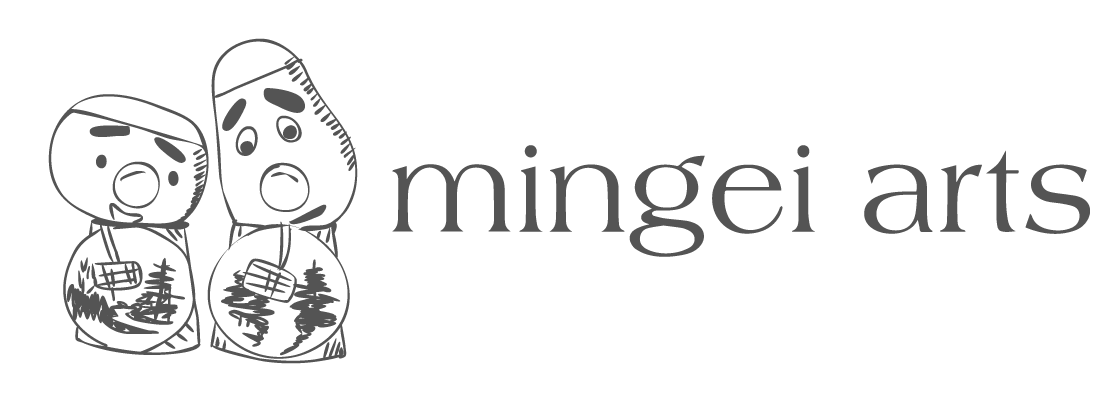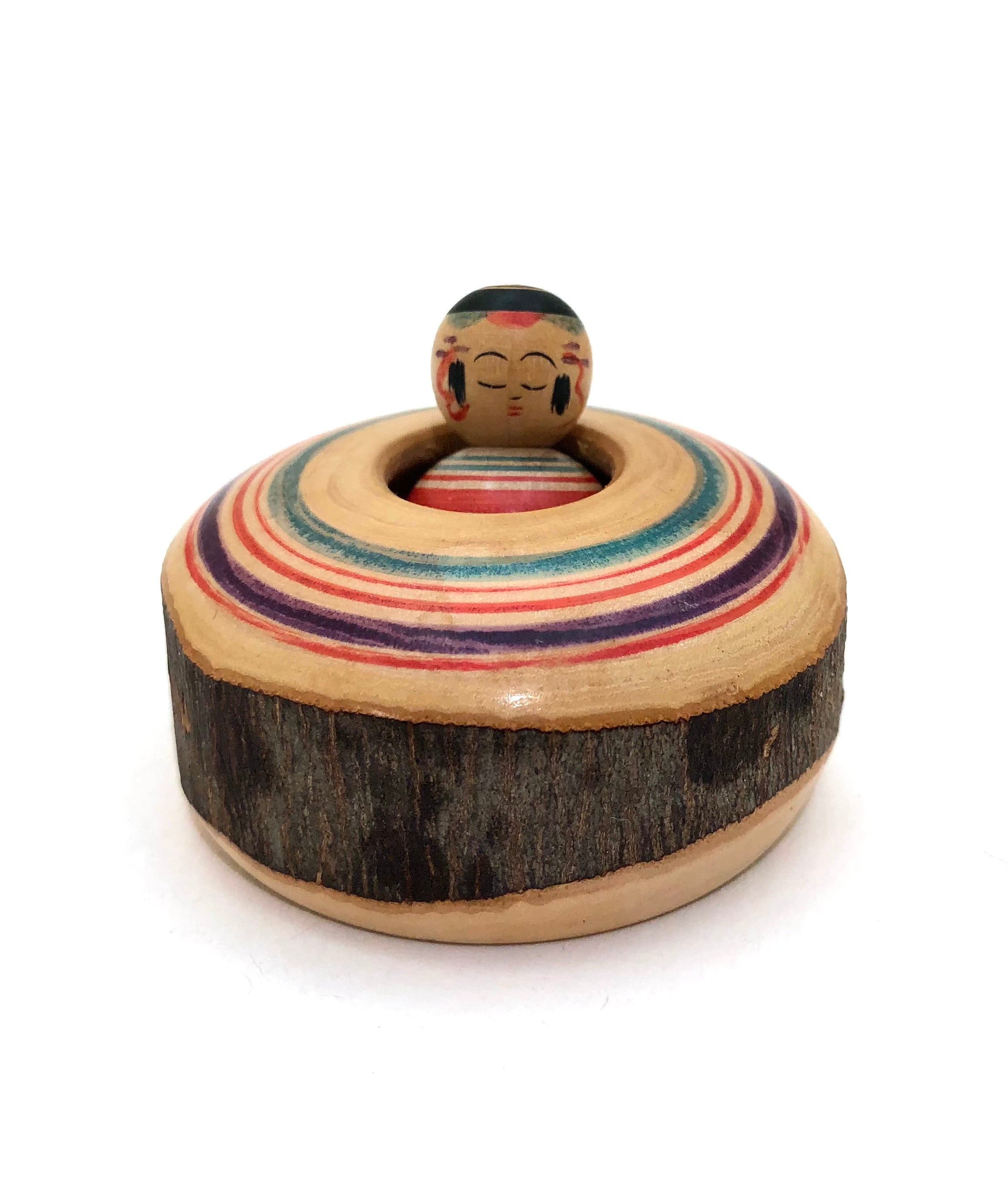
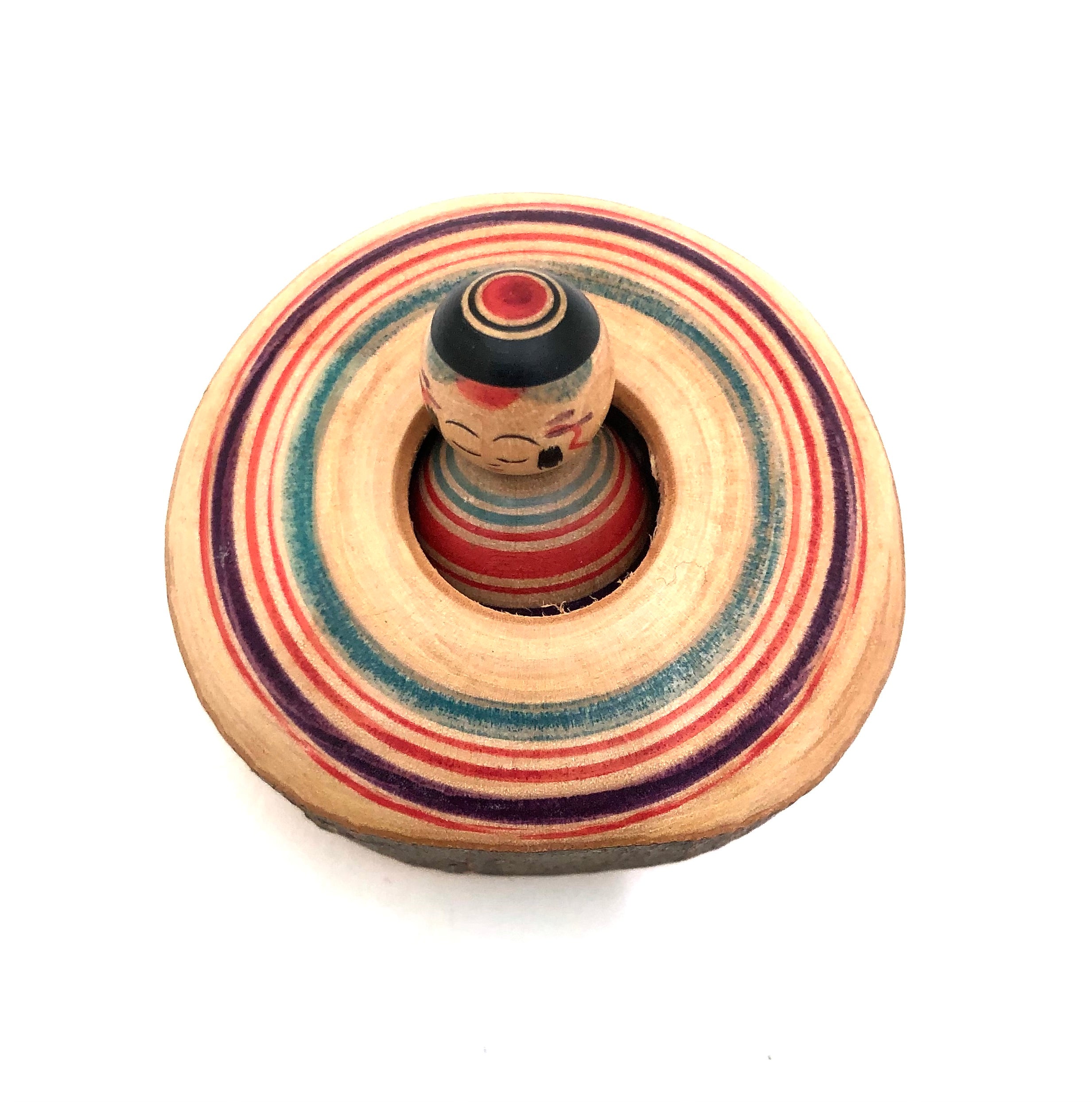
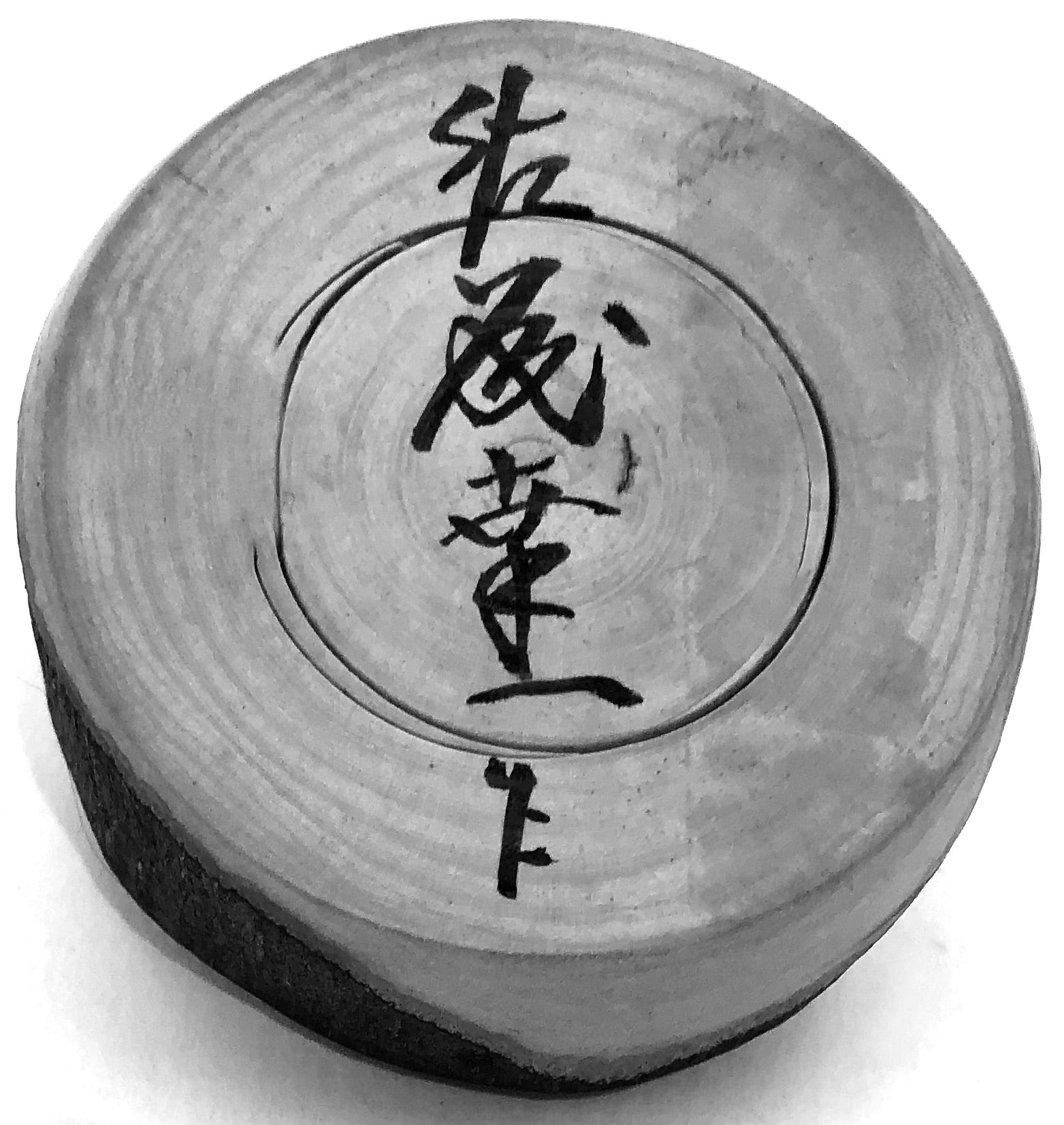
Vintage Japanese “Sleeping” Yajirou Ejiko by Kouichi Sato (1936-)
Dimensions: 1-3/4”h x 2-0”dia
The creators of these wonderful Ejiko hail from the small farming village of Yajirou-machi near Kamasaki Onsen in Miyagi Prefecture, once a farming village between two, tall mountains. The kiji-shi (woodworkers), divided their time between farming and wood-craft. The baby moves freely within the base as if it were sitting in a simulated basket, and in this case wood with natural bark on the exterior and a type that farming mothers use to keep their babies near them in the fields during the busy season. This allowed them to supervise and attend to the little ones when no one else was available.
Offered is a wonderful Izume.ko baby utilizing a veritable rainbow of colors, from the usual red and black to green, and purple. The upper body usually has a hand-painted collar with horizontal stripes encircling the body, as in the Rokoru moyo style, and vertical stripes running below the neckline to the base of the doll. The baby has a painted beret-like feature or a bun on its head, similarly painted with a red center spot and side hair fringes. It has one lid eyelid, cat shaped nose. The toy is beautifully detailed, and made of natural wood from the region. The piece is signed on the bottom by the carver.
See our e-book entitled: A Collector’s Guide: Traditional and Creative Kokeshi and Toys: https://mingeiarts.com/collections/our-books/products/a-collectors-guide-traditional-and-creative-kokeshi-and-toys
Condition: Excellent meaning that the piece retains its original craft/workmanship and functions as intended, showing a wonderful-developed patina and is void of damage, cracks, breakage, or repairs and meets all the standards of the collectible Vintage Traditional Kokeshi Toys.
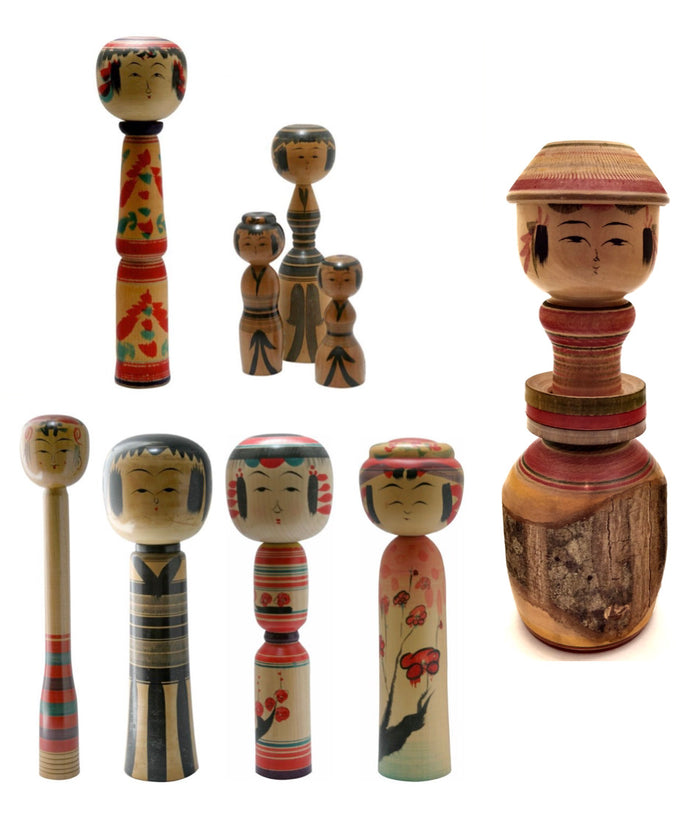
Japanese Traditional Kokeshi
Yajirou-Kei (Family)
Prefecture: Miyagi
Origin:
This strain of Kokeshi is said to have been an offshoot of the Tougatta strain and is far less refined. That eventually developed into a unique style that remains today. The creators of these dolls hail from the small farming village of Yajirou-machi near Kamasaki Onsen, in Miyagi Prefecture, once a farming village between two tall mountains. The Kiji-shi (woodworkers) divided their time between farming and woodcraft. Those who made kokeshi in their spare time sent their wives to the nearby Kamasaki Onsen to sell their work to tourist shops and onsens.
Collector's note – characteristics/painting style:
The majority of this style has distinct waists, or (kubire), where the body tapers inward, with a wider, flared base similar to a kimono, thus making them very stable. The upper body usually has a hand-painted collar with horizontal stripes encircling the body, as in the Rokoru-moyo style, and vertical stripes running below the waist to the base of the doll. However, Yajirou dolls can also be found with a series of chrysanthemum petals running down the front of the body, or a branch of plum blossoms, as the only decoration. Yajirou dolls are some of the most brightly painted of the traditional family group. Utilizing a veritable rainbow of colours, from the usual red and black to green, yellow, and even blue and purple, they are available in probably the widest range of shapes. Some also have a painted beret-like feature or a bun on their heads, similarly painted with a red center spot. Less common are Yajirou who have conical hats known as Suge-Gasa. Typically seen is one lid or double eyelids and a cat or pick-shaped nose. Yajirou kokeshi have been made from cherry wood, camellia, and maple, but the preferred wood is white dogwood, (Mizuki). And finally, both Yajirou and Tougutta dolls are sometimes created with loose rings circling the waists. Carved from the same wood as the body, which is a very meticulous method! This treatment is referred to as 'Yamiyo' style kokeshi.

Leading, Craftsmen:
Niiyama, Keimi, 1925, (Shirabu, Yamagata) - Master Niiyama, Keimi. No additional published information
Niiyama, Fukutaro, 1898-1965 - No additional published information
Niiyama Fukuo, 1922, (Yajiro Shironishi, Miyagi) - Master: Niiyama, Fukutaro. No additional published information
Niiyama, Hisaharu, 1942-2008 - No additional published information
Niiyama, Sanai (Master) - No additional published information
Oizumi, Kiyoni - No additional published information
Saito Masao, 1932, (Shiroishi, Miyagi) - Master: Sato, Tsugio. No additional published information
Sato Tatsuo, 1928-2009, (Yajiro Shiroishi , Miyagi) - Master: Sato, Imasaburo. No additional published information
Sato Yoshiaki, 1936, (Shiroishi Miyagi) - Master: Sato, Tatsuo. No additional published information
Sato, Koichi, 1936, (Shiroishi, Miyagi) - Master:Hamatsu, Heisaburo. No additional published information
Explore & Learn More about Yajirou-Kei (Family)